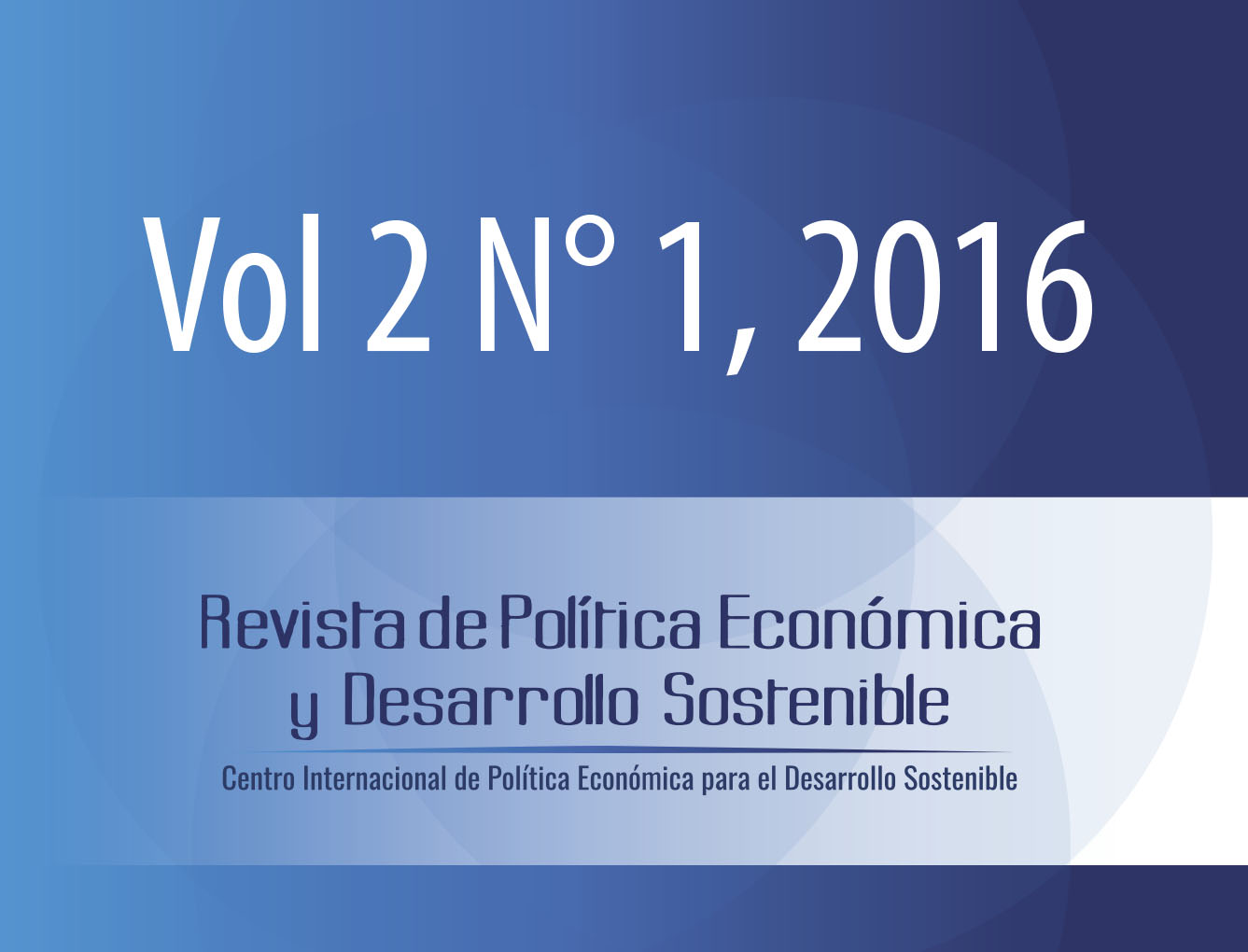Políticas de acceso al financiamiento del micro, pequeño y mediano productor en las cadenas globales de mercancías: crédito e IED
DOI:
https://doi.org/10.15359/peds.2-1.1Keywords:
financing, global commodity chains, small rural farmers, financial system, banking technology, access to international marketsAbstract
This article connects theory and global commodity chain concepts to traditional financing theory in order to propuse changes in areas such as property rights, comercial legislation, financial legislation, and supervisión that would allow financial institutions to créate non-conventional financial products for small scale rural entrepreneurs, organized groups of processors, and exporters to have access to finance or improve the conditions in which they receive it and thus ensure that they are integrated to the global commodity chain on a sustainable manner. Although both approaches are treated independently in literature, related publications were analyzed to determine which áreas would support the proposal of having access to finance from the point of view of global commodity chains and of having this proposal become a new banking technology paradigm for financial agents. This paper analyzes the structure and financing flows between chain agents and national and international financial agents, as well as the role of foreign direct investment in the financing of global commodity chains. The proposal for financial agents to create new financing inst ruments in the context of global commodity chains is built as a result of the analysis of the characteristics of chains, producer agents and commercial and financial contracts, which would guarantee r ecovery of the resources provided.
References
Akin, B. y Fries, R. (2004). Value Chains and Their Significance for Addressing the Rural Finance Challenge. United States Agency for International Development. United State of America
Carranza, C. y Díaz , R. (2005). Mercados financieros en las cadenas agroindustriales de mercancías: aproximación conceptual. Revista ABRA, 34, 53-83.
Carranza, C. (2001). Crédito Agropecuario y Sostenibilidad de la Agricultura. Revista Economía y Sociedad, 16, 25-44.
Carranza, C. (2002). Aplicación del modelo Tobit a la estimación de la oferta de crédito agropecuario en Costa Rica. Revista Economía y Sociedad, 19, 109-126.
Chalmers, G., Gálvez, E., Tiffen, P. y Wenner, M. (2007). Lecciones aprendidas en el financiamiento de las cadenas agrícolas de valor. En Quirós, R. Financiamiento de las cadenas agrícolas de valor. San José, Costa Rica: Academia de Centroamérica.
Gereffi, G. y Korseniewicz, M. (1994). Commodity chains and global capitalism. USA: Greenwood Publishing Group.
Hess, C., Springer-Heinze, A., Bertenbreiter, W., Jarchau, P. y Braun, P. (2007). Service for Rural Development. Agriculture, Fisheries and Food, Division 45. Bonn, Germany
Jansen, A. (2007). Value Chain Finance. Understanding & Increasing Access. United States Agency for International Development. United State of America
Johnston, C. (2007). Value Chain Governance and Access to Finance: Maize, Sugar Cane and Sunflower Oil in Uganda. United States Agency for International Development. United State of America
KIT, IIRR y FOROLACFR. (2010). Financiamiento de cadenas de valor: Más allá de las microfinanzas para emprendedores rurales. Royal Tropical Institute, Amsterdam; International Institute of Rural Reconstruction, Nairobi; Foro Latinoamericano y del Caribe de Finanzas Rurales, Lima.
Meyer, R. L. (2007). Analyzing and Financing Value Chains: Cutting Edge Developments in Value Chain Analysis By Presentation at the 3rd African Microfinance Conference: New Options for Rural and Urban Africa, (August), 20–23.
Shwedel, K. (2007). Financiamiento de las cadenas de valor: una estrategia para lograr racionalidad, competitividad e integración. San José, Costa Rica: Academia de Centroamérica.
Sucre, M. A. (2014). Finance, Growth, and Social Fairness: Evidence for Latin America and Bolivia. Tilburg University.
UNCTAD. (2004). Financing Commodity-Based Trade and Development: Innovative Agriculture Financing Mechanisms. Report prepared by the UNCTAD secretariat. Recuperado de http://www.jstor.org/stable/10.2307/41392810
Zeller, M. (2005). A fresh look at Rural & Agricultural Finance. Issue I. United States Agency for International Development. Office of Agriculture and Microenterprise Development Office







